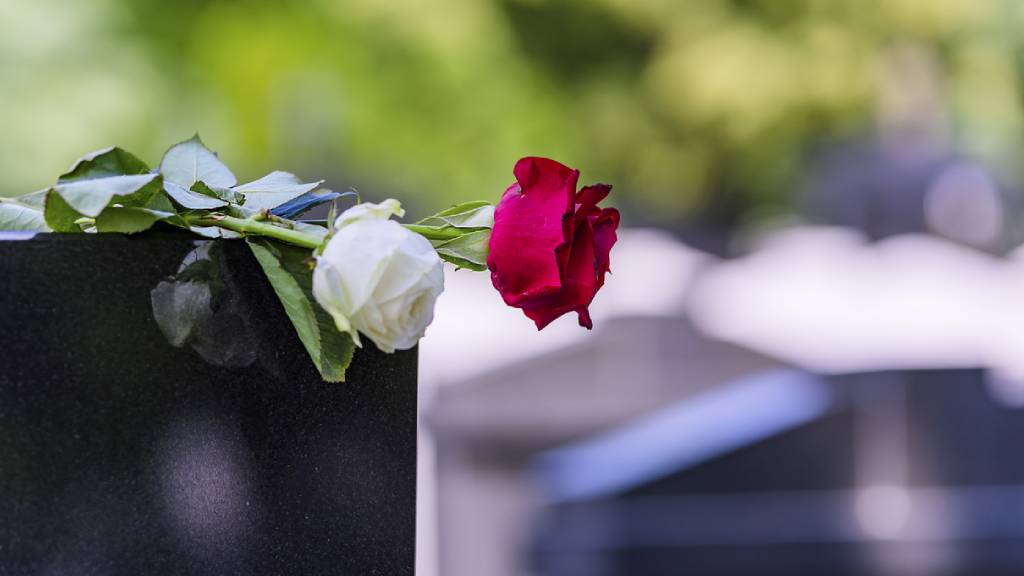How to organise a funeral

Organising a funeral can seem overwhelming, especially when you’re dealing with the grief of losing a loved one. However, by doing research and getting organised, you can minimise the stress, save on costs, and arrange a funeral that allows everyone to pay tribute to the deceased person and come to terms with the loss.
This guide takes you through the major things to consider and outlines the key steps in funeral planning, whether you’re planning your own funeral in advance or organising a funeral for a loved one who has passed away.
Things to consider before you start planning
If you’re in charge of making the funeral arrangements, take time to stop and think about the type of funeral you’d like to plan. Do you know what your loved one would have wanted for their funeral? For example, did they specify whether they wanted a religious or civil ceremony and a preference for location? Did they ask to be buried or cremated?
Consider things like guests, order of service, content of service, decorations, and music. If they didn’t leave instructions, check with the people closest to them to find out what they might have preferred for their funeral. Getting clarity on these points will enable you to organise a better funeral for your loved one.
Using a funeral director
You’re not required to use a funeral director, but most people do choose to employ a funeral director as it’s helpful to have the assistance of an experienced person for the paperwork and other arrangements.
Even if you’re planning not to use a funeral director, when a person dies at home rather than at the hospital or nursing home it’s usually necessary to contact a funeral director as they have the facilities to store the body until burial or cremation.
The funeral director will take care of the funeral arrangements, including registering the death. He or she can also help you with a number of details, such as arranging the burial or cremation, choosing a gravestone, finding a location for the funeral service, choosing the type of service, and arranging the eulogy and music.
The funeral director can take care of things like arranging for an obituary in the local paper (if you’d like one), setting up a viewing of the deceased, choosing a casket or coffin, and personalising the funeral service.
They can also help with finalising the guest list in the context of venue for the service, funeral decorations, dressing your loved one, and planning the wake. The funeral director will also typically supply the hearse and staff for the funeral service.

You’ll need to obtain a Medical Certificate for Cause of Death from a doctor, which then allows the funeral director to register the death. If you’re not using a funeral director, you can register the death yourself if you’re the next of kin or a relative.
Covering the cost of the funeral
While financial considerations will probably be the last thing on your mind, it’s important to think about costs as you plan the funeral so you can stay within budget. You should take into account the funeral director’s fees, funeral merchandise costs, and disbursements.
The funeral director’s fees covers their professional service rate as well as the hearse and staff, while merchandise costs include the coffin or casket, memorial books, urn and any service booklets to be used. Disbursements are costs such as cemetery and crematorium fees, obituary fees, flowers, and decorations.
While funeral costs vary widely, generally funerals in Australia cost anywhere from $4,000 to $15,000. Getting a few quotes from funeral directors and for disbursements can help you keep costs within budget. You can ask to make payment in installments to make costs more manageable.
It’s also a good idea to check with your loved one’s bank about releasing funds to cover the costs of the funeral. And if your loved one had funeral insurance, you could get a lump sum payout that helps you cover some or all of the funeral costs.
Comprehensive funeral planning checklist
Pre-planning items
Before planning the funeral service, you may need to do the following.
- Contact a doctor and obtain a Medical Certificate for Cause of Death
- Notify friends, relatives, and other parties about the death
- Check whether your loved one has made any requests about their funeral and burial
- Check for financing options, including your loved one’s funeral funds and insurance policies
Planning the funeral service

If you’re working with a funeral director, they’ll be able to help you with making a decision on many of the following considerations.
- Burial or cremation – Decide whether it will be a burial or cremation and ensure that you have the necessary documents prepared.1
- Embalming – Check whether embalming is required or appropriate.
- Choose a venue – Find a venue or location (such as a cemetery or church) for the service and choose a time and date.
- Choose a burial plot – If there will be a burial, you’ll need to find a burial plot in a cemetery.
- Clothing and accessories – For burials, decide on what your loved one will wear and the accessories they will have (if any).
- Arrange for the gravestone – For burials, obtain quotes from monumental masons for the gravestone or memorial, and then choose a gravestone.
- Coffin or casket – For burials, choose a coffin or casket for the deceased.
- Find a crematorium – If the deceased requested a cremation, obtain quotes from crematoriums.
- Choose an urn – For cremations, choose a cremation urn and decide what to do with the ashes.
- Choose the pallbearers – If there will be a burial, choose the pallbearers and contact them with instructions.
- Type of service – Decide on the type of service, music and multimedia (such as photo slide show or videos), and floral arrangements and decorations.
- Officiating person – Choose a minister, celebrant, or other officiating person to conduct the funeral service.
- Eulogies – Speak to family and friends about making eulogies.
- Casket and viewing – Decide on whether it will be an open-casket or a closed-casket service, and whether there will be a viewing.
- Memorial cards – Organise memorial cards for guests at the service.
- Transportation – Arrange transportation to and from the funeral service for friends and family.
- Invitations – Notify all guests about the time and place of the service and the wake.
- Catering – Arrange for catering and refreshments at the service and the wake.
- Death notices – Arrange for death notices in local publications, whether online or offline.
- Donations – If your loved one was involved in causes, you could arrange for guests to make donations instead of flowers and gifts.
16 Jun 2016